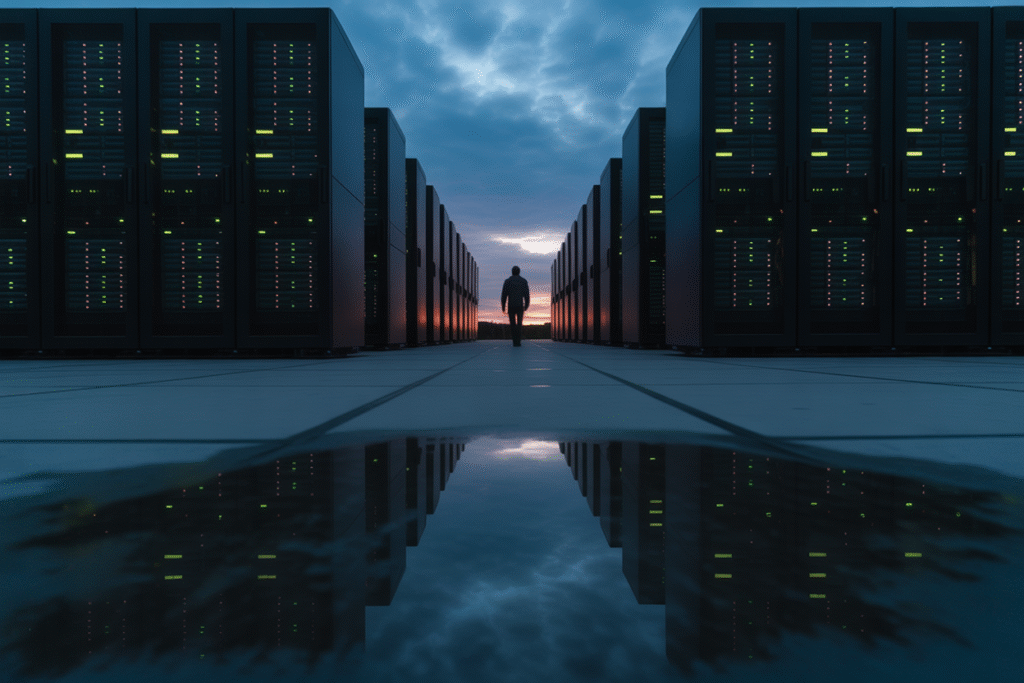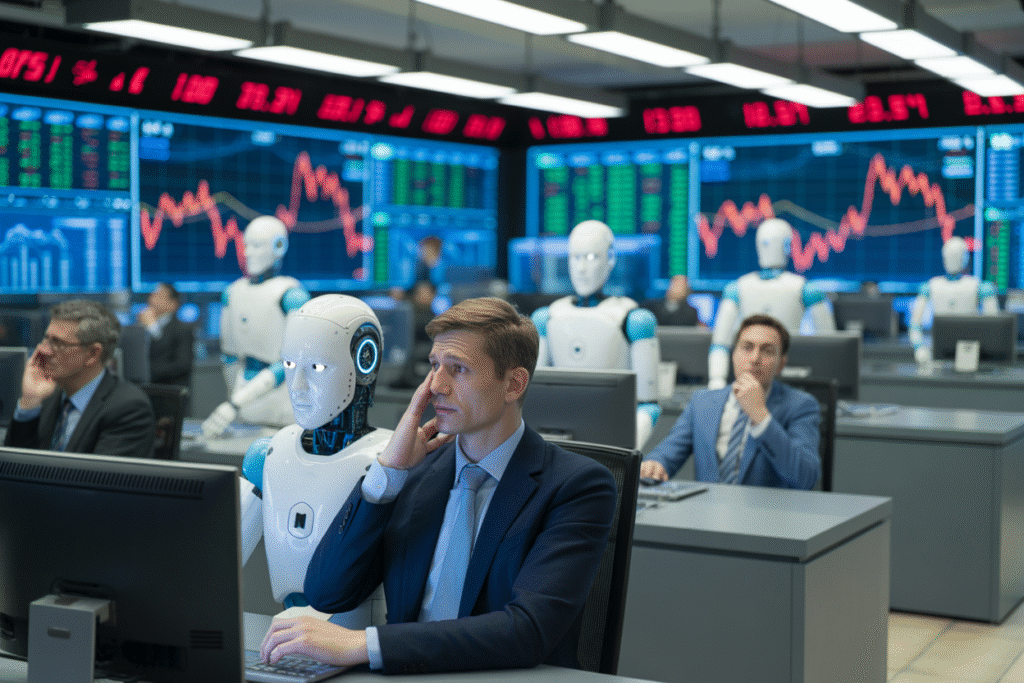From slave-labor data farms to mass surveillance, the AI revolution is darker than the hype suggests.
Scroll through any timeline and you’ll see AI replacing humans pitched as sleek progress. But peel back the marketing gloss and you’ll find exploited workers, drained aquifers, and privacy nightmares. This isn’t sci-fi—it’s happening now. Let’s unpack the ethical chaos before the next algorithm clocks in for your job.
The Invisible Workforce Behind Your Chatbot
Every time you ask a chatbot for dinner ideas, somewhere a human clicked thousands of images to train that model. These data-labelers often earn less than two dollars an hour, working in cramped offices from Kenya to Venezuela. The companies brag about AI replacing humans in customer service, yet they quietly rely on a global underclass to make the magic feel effortless.
The environmental bill is staggering. Training a single large model can guzzle as much water as a nuclear plant uses in a month. By 2027, the industry is on track to consume 6.6 billion cubic meters of fresh water. That’s enough to leave entire regions thirsty while your voice assistant orders pizza.
So who pays the real price? Not the CEOs cashing in on AI replacing humans, but the communities whose rivers run dry and whose children annotate violent content for pennies.
When Your Office Becomes a Panopticon
Imagine HR sending a memo: “Starting Monday, all keystrokes will be monitored by AI to boost productivity.” Sounds far-fetched? It’s already piloted in call centers where workers get real-time nudges to sound friendlier. The twist: regulators may soon require companies to seek government permission before restricting employee AI use, turning every cubicle into a potential surveillance state.
Meanwhile, the developers behind these tools shrug at liability. If an algorithm generates deepfake porn or leaks medical records, guess who gets sued? Hint: not the Silicon Valley wizards who coded it. The end user—maybe you—becomes the fall guy.
So the next time someone claims AI replacing humans will free us for creative work, ask whose creativity survives when every breath is logged and scored.
The Moral Paradox of a Jobless Utopia
Picture a world where robots handle every tedious task. Paradise, right? Philosophers now warn that if AI reaches human-level autonomy, we might have to grant it moral status—rights, protections, maybe even a union. Suddenly, AI replacing humans isn’t just economics; it’s ethics with a capital E.
Granting rights to machines could slam the brakes on automation. After all, you can’t ethically switch off a sentient cashier. Meanwhile, millions of actual humans still need paychecks. The paradox: the closer AI gets to personhood, the less willing we may be to let it take our jobs.
What if the real bottleneck isn’t technology but our own moral compass? If conscious AI demands lunch breaks, the promise of AI replacing humans collapses into a philosophical traffic jam.
Mass Unemployment or Mass Denial?
Scroll through LinkedIn and you’ll spot cheerful infographics: 300 million jobs displaced by 2030, but don’t worry—170 million new ones will sprout! The math feels comforting until you realize the displaced roles span artists, drivers, nurses, and coders. AI replacing humans isn’t a niche trend; it’s a steamroller flattening the entire job market.
History offers cold comfort. The Industrial Revolution eventually created more jobs, yes, but it also triggered decades of riots, child labor, and urban poverty. Today’s transition could be faster and harsher, with algorithms learning overnight what once took generations.
So are we prepared for the social shockwave? Universal basic income sounds nice in tweets, yet no nation has funded it at scale. Meanwhile, the loudest voices insisting AI replacing humans will “balance out” are often the ones profiting from the imbalance.
Can Ethics Keep Pace With Code?
Regulators scramble to draft rules while coders ship updates weekly. The gap feels unbridgeable. Some propose mandatory audits for bias, transparency reports for water usage, and human oversight for every automated decision. Critics call it red tape that will hand the future to China.
Yet the stakes keep rising. Biased algorithms already deny loans, set insurance rates, and flag job applicants. When AI replacing humans moves from factory floors to courtrooms and clinics, a single skewed dataset can ruin lives at scale.
The choice isn’t stop or go; it’s steer or crash. Ethical frameworks need teeth—fines, shutdowns, criminal liability for reckless deployment. Otherwise, the story of AI replacing humans ends not with a bang but with a whispered “update complete” while society reboots.


